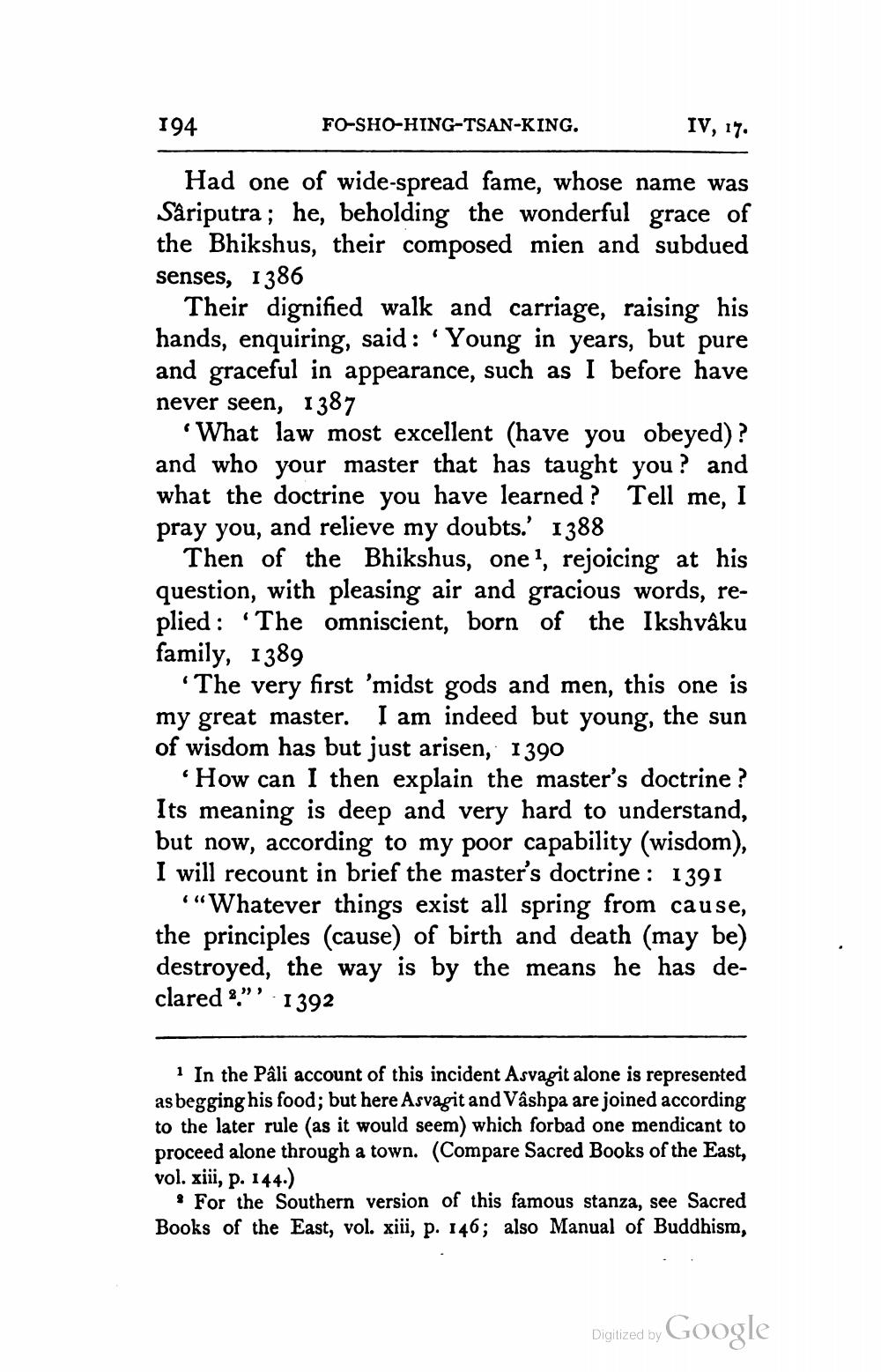________________
194
FO-SHO-HING-TSAN-KING.
IV, 17.
Had one of wide-spread fame, whose name was Sâriputra; he, beholding the wonderful grace of the Bhikshus, their composed mien and subdued senses, 1386
Their dignified walk and carriage, raising his hands, enquiring, said: “Young in years, but pure and graceful in appearance, such as I before have never seen, 1387
What law most excellent (have you obeyed)? and who your master that has taught you ? and what the doctrine you have learned ? Tell me, I pray you, and relieve my doubts.' 1388
Then of the Bhikshus, one?, rejoicing at his question, with pleasing air and gracious words, replied: "The omniscient, born of the Ikshvaku family, 1389
'The very first 'midst gods and men, this one is my great master. I am indeed but young, the sun of wisdom has but just arisen, 1390
How can I then explain the master's doctrine ? Its meaning is deep and very hard to understand, but now, according to my poor capability (wisdom), I will recount in brief the master's doctrine : 1391
""Whatever things exist all spring from cause, the principles (cause) of birth and death (may be) destroyed, the way is by the means he has declared "'1392
1 In the Pâli account of this incident Asvagit alone is represented as begging his food; but here Asvagit and Vashpa are joined according to the later rule (as it would seem) which forbad one mendicant to proceed alone through a town. (Compare Sacred Books of the East, vol. xiii, p. 144.)
For the Southern version of this famous stanza, see Sacred Books of the East, vol. xii, p. 146; also Manual of Buddhism,
Digitized by Google




